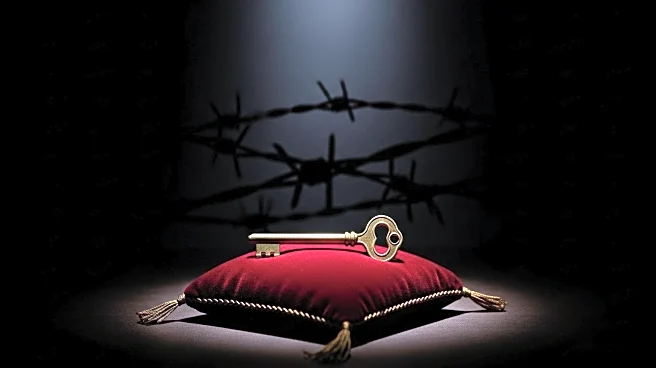What's Happening?
Families of hostages held in the Gaza Strip are preparing for the return of their loved ones following a cease-fire agreement between Israel and Hamas. The release is expected to occur on Monday, with Hamas set to free hostages from three locations in Gaza under the supervision of the Red Cross. Israel will oversee the safety and conditions of the release. Families have been seen packing suitcases and displaying signs welcoming their loved ones home. This development is part of a broader cease-fire deal aimed at reducing tensions in the region.
Why It's Important?
The release of hostages is a significant step in the ongoing conflict between Israel and Hamas, potentially easing tensions and fostering a more stable environment in the region. It highlights the humanitarian aspect of the conflict, focusing on the plight of individuals and families affected by the hostilities. The involvement of international organizations like the Red Cross underscores the global attention and efforts to mediate and resolve such conflicts. The successful release could pave the way for further negotiations and peace-building efforts.
What's Next?
Following the release, there may be increased diplomatic activity aimed at solidifying the cease-fire and addressing broader issues in the Israeli-Palestinian conflict. Stakeholders, including international bodies and governments, might push for more comprehensive peace talks. The focus will likely shift to ensuring the safety and well-being of the released hostages and their families, as well as monitoring the cease-fire's adherence by both parties.
Beyond the Headlines
The hostage release could have deeper implications for regional politics, potentially influencing public opinion and policy decisions in Israel and Palestine. It may also affect international relations, as countries involved in the mediation process could leverage their roles to gain diplomatic influence. The humanitarian aspect of the release highlights the ongoing need for international support and intervention in conflict zones.








